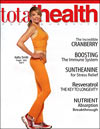Reiki and Parkinson's

Photo by Selma Shepard
By Heather Alexander
Guest Editor
71 year old Jim Atwell was on a train traveling from London to Chichester in the South of England when he first noticed his right hand start to shake. He turned to his wife with a throw away comment, ‘‘too much running with heavy suitcases for the old man,’’ but a fellow passenger wasn’t going to let him brush it aside so easily. He leaned over to urge Jim to get checked out as soon as possible. By the time the Atwell’s returned to the US, the tremors were worse and it wasn’t long before Jim was diagnosed with Parkinson’s Plus - regular Parkinson’s disease with extra symptoms on top.
That was three years ago. Now Jim is acutely aware of the harsh reality of his position, “I have a degenerative, incurable, chronic disease, very likely a mortal disease and I’m probably only about three years away from the last phase of whatever this is, a phase of dementia with the loss of a great deal of bodily function.”
Jim is not someone afraid to look at the cards he has been dealt - he speaks with a directness that only the most present people seem to possess, ‘‘It’s not the happiest picture, but I live in a real sense of serenity because of my Quaker faith.” It was through that Quaker faith that Jim got introduced to healing energy. He went to a seminar hosted by John Calvi who describes himself as a Quaker healer. After teaching the principles of offering healing, he placed two chairs in the center of a circle of those gathered and asked anyone who felt called to come and sit and receive healing. Jim says he immediately took the opportunity, “Honestly, I don’t know how to describe the sensation, it wasn’t some sort of zap of energy, I wasn’t cured by any means but I had just this astounding sense of an influx of healing love coming in from every direction.” Mr. Atwell says he went in leaning heavily on a cane yet left the meeting without it. Six months later he says he still rarely uses it.
During those six months he has kept his energy work up with regular Reiki sessions from fellow Quaker and Reiki practitioner Stephen Leslie. Stephen and his fiancee Victoria Hux have done several treatments with Jim. Stephen says at first they were so dramatic it was very intimidating, “His whole body would start to shake, almost convulse. I was overwhelmed, I didn’t quite know what to make of it.” Stephen had checked in and made sure Jim was okay so in the end he simply carried on with the session and felt an intense connection, “I was doing a combination of yoga healing, Qi Gong and Reiki; we were so connected that when I would start to have the intention of changing what I was doing, his whole body would react. I felt like I was playing the cello, as I shifted, the vibration (in his body) shifted.” Victoria agrees the sessions were intense. She says she had talked to her teacher, Frans Stiene of the International House of Reiki beforehand and that had put her mind at rest, “Frans had mentioned that people often twitch, I was really thankful we had talked about it, I wasn’t alarmed at all.”
For Jim, the sessions have been tremendously helpful. “The effect is a kind of ordering of myself from head to foot, as if somehow I’m being realigned.” He describes feeling jerks and tremors in his legs or sensing energy patterns moving up and down his body, even to the point where he can visualize them in colors. But none of this moves him from his classically down-to-earth outlook, “It sounds spooky and new wave but I’m not a spooky and new wave kind of person. I’m just a person who believes that reality extends far beyond the limits of our human capacities.”
Jim describes PD as a ‘snarly’ disease, saying the lack of dopamine means you forget things you’ve learned since childhood, like talking at the right volume or even walking. He says Reiki makes him feel like the snarls are coming out - that he’s being combed smooth from top to bottom. “After a session I notice a great calm; I just don’t want to move. Just sitting here now, inside my shoes my toes are doing a kind of line dance - an endless game of this little piggy comes to market but no-one ever goes home; the sessions seem to stop that, sometimes for days.” On his next trip to his neurologist the effects didn’t go unnoticed. “He said, ‘What have you been doing? Why are you walking better and talking better?’ I had nothing to attribute it to apart from maybe the build up of the drugs I was taking but I’m convinced that a lot of it is flowing from just bringing some order back into a disorderly neural system.”
“More research is needed”
In talking to the National Parkinson Foundation, it is clear that there is broad support for the use of complementary therapy by patients. President of the Foundation Joyce Oberdorf says the NPF has long supported a comprehensive model, “We believe in not just taking a pill but in interdisciplinary care and complementary therapy is part of that.” When pushed for examples, though, it is exercise, Tai Chi, Qi Gong and music therapy that come out first because studies have been done which have shown definite benefits. “We don’t have much experience with Reiki” she says.
As is often the case for energy work, much of the information comes in the form of anecdotal evidence from people like Jim Atwell. Leading Parkinson’s neurologist Dr. Melanie Brandabur has become the Foundation’s resident speaker on complementary therapy. She says what the industry really needs is more research but that it is becoming increasingly difficult to get projects funded. She has just had a pitch for a project looking into the effects of yoga on PD rejected. “There is huge competition: funding of research projects has really gone down and those that are still funded are funded by drug companies and they’re not going to fund a study into something like yoga. This has really slowed down the growth of complementary therapies.”
“Some people consider it Voodoo”
However, on talking further with Dr. Brandabur, it is obvious there are other problems that Reiki in particular faces. She says one of her nurses wanted to put together a study of Reiki and PD, so she did some research into it and was put off, “I did a Google search and saw that some people consider it Voodoo, so I chose yoga for the study instead.” So clearly there is a need for more overt and responsible coverage of Reiki to counteract any misrepresentation.
The level of seriousness at which Reiki is taken is also affected by the fact that it is so difficult to measure what is or isn’t happening and by the prevalence of the placebo effect in Parkinson’s disease. Dr. Brandabur says that with PD is there is a huge placebo effect, “If patients expect to get better, they will get better; they release dopamine, so therefore anything can cause an improvement, therefore anecdotal evidence is not very helpful.” Parkinson’s is also made worse by stress, so any form of relaxation technique tends to help too. But in the case of Jim Atwell, the level of intensity in the sessions, the violent shaking and vibrating of his body, would seem to point to something more than improvements due to good expectations or simple relaxation. Practitioner Stephen Leslie says it was more like some kind of “neural cleansing.”
The idea of a placebo effect does not mean that patients are not encouraged to try Reiki, though. Dr. Brandabur’s main concern is a worry that placebo opens the door for patients to be exploited. She says there have been cases of companies telling people they can make Parkinson’s “go away” and charging a fortune to do it. She says because of the placebo effect a person might notice a difference at first, but it may not have anything to do with the treatment. She says if practitioners are responsible and honest, then she tells her patients to go for it, “My view is if it’s not going to hurt you or empty your bank balance, give it a try, but I have a huge problem with people making big claims; it is highly unethical.” She welcomes well-grounded complementary therapists who want to work in conjunction with a patient’s whole health care team.
In all of this, the main point for Jim Atwell remains that “this stuff works.” He says no-one is trying to claim a cure, but what he has found is that you can give yourself some real relief from the symptoms. He also says it is very important to be able to do something for himself, “When you see that the body that has always just responded is suddenly doing things on it’s own, that is scary stuff when it starts to happen.” He has talked about taking Reiki classes so he can give himself treatments whenever he likes. For this man who is neither ‘spooky’ nor ‘new wave’ the logic of Reiki and other forms of energy healing is clear, “When you think of the medicine of 100 years ago it seems astoundingly primitive and one has to presume that in 100 years from now medics will also look back and think our medicine is astoundingly primitive. What those factors suggest is that capacity runs far ahead and beyond anything in our possession at any given time. So if there is a way of reaching beyond present scientific limitations to touch in some way dimensions of human experience that science has not yet caught up with then why not try it?”
Jim Atwell is a retired professor and lives in Fly Creek, New York, with his wife Anne.
































0 Comments:
Post a Comment
<< Home